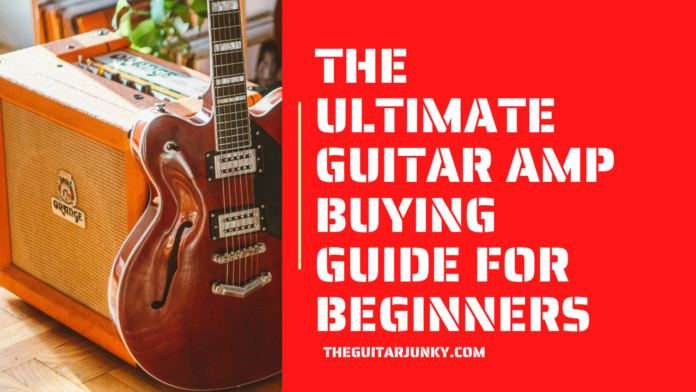Letting other people hear your music is part of the fun when you’re learning how to play the electric guitar. There’s nothing like the feeling of excitement and fulfillment when you see other people rock out to your sound.
But as a beginner, playing on stage or getting gigs may not be a top priority – an amp for practice might be the type of investment you should make for now, Simon Morel has a great article about small amps here.
As a first-time buyer, you would need a guitar amp that will help you discover personal music styles as you progress your skills. But even though you’re not exactly a rockstar just yet, you would also want an amplifier which you can take with you as you grow to become the musician you aspire to be. So you’d also want an amp that’s versatile and durable for the years to come.
So, how do you buy your first guitar amplifier? We have a recommended list of best guitar amps for beginners, but if you’re interested in finding the one for you, keep on reading this article, or you can view this best practice guitar amps guide.
Contents
Do You Need An Amp For Your Electric Guitar?
Before we dig into the buying guide, let’s first answer a question a lot of beginners have about guitar amps. You might be wondering, do you need an amp for your electric guitar?
The answer is, technically no. You can still play an electric guitar without an amplifier, but it will not have that distinct electric sound that can only come from an amplifier.
To put it plainly, it’s not impossible to play an electric guitar without an amp. But you’d be better off playing an acoustic guitar without it.
A Guide On How to Buy Your First Guitar Amp
One important key to remember when buying a guitar amplifier for beginners is personal style. There is no such thing as the perfect guitar amplifier. What works for others might not always be the best choice for you as a musician.
Keep in mind that this guitar amplifier buying guide is just a guideline to help you weed out the bad choices from the ones that could potentially be your guitar amplifier. The selection process is all about self-discovery; finding out what you like and what you don’t like. That said, let’s begin with the very first tip:
Know Your Sound
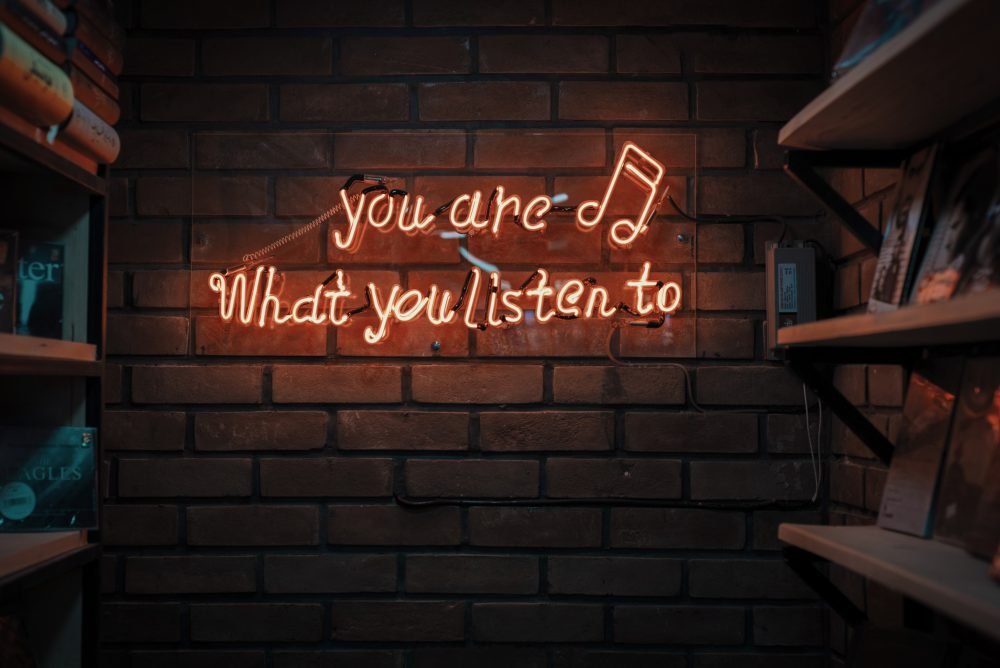
As mentioned about, it is essential that you figure out what your style is when buying a guitar amplifier. Some amps do well with jazz style music, while others are more compatible with a metal or heavy rock sound.
Choosing guitar amplifiers according to your style and taste in music can significantly help you narrow down your list. While we’re on this topic, also take into consideration the type of music you would like to play in the future. A guitar amplifier doesn’t come cheap, so it’s best to choose one that can stick with you even if your taste in music has changed.
Decide On How You Are Going To Use It

As a beginner, you might be looking for an amp that is best for practicing; a simple amp that you can plug into the basement of your home – without bothering your neighbors with the noise you will eventually make.
That said, you won’t be needing an amp that has high wattage. Amps that have more power and wattage are best for performing purposes. Unless you are looking to recreate your bedroom or basement into a live stage, then you have no reason to buy an amp with all that power.
Besides, an amp that has high wattage is usually more expensive than those that do not have as much power. And so one thing that you need to look out for when buying a guitar amp as a beginner is the wattage.
Take a look at the amp’s specifications, and then you can easily decide from there.
Consider Your Guitar Pedals
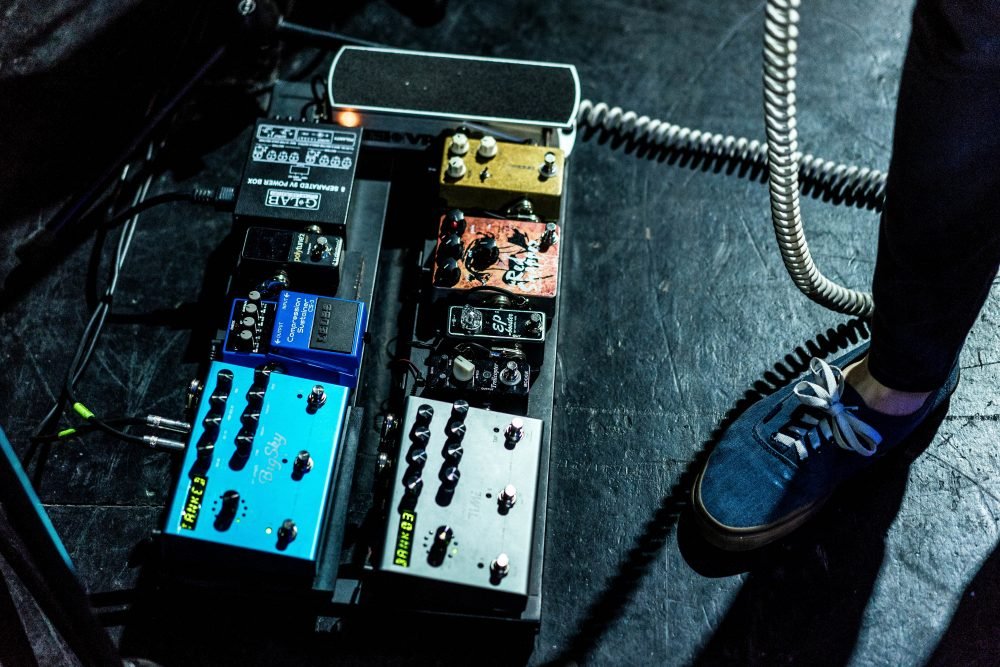
If you’re looking to use a lot of guitar pedals, you’d want an amplifier that can carry all that load for you. Many first-time buyers make the mistake of buying an amp without considering their guitar pedals. In the end, they struggle to hook up their pedals with their amp. It’s because there are not a lot of amps can take guitar pedals as well as the others.
So if guitar pedals are an essential tool for you to produce the music you like, it is so important that you get an amp that accommodates those pedals. If you’re going to your local store to buy an amplifier, do not forget to bring your pedal with you.
Also Read:
10 Best Multi-Effects Pedals for Guitarists
10 Reasons Why You Should Have a Pedalboard
Listen To The Distortion
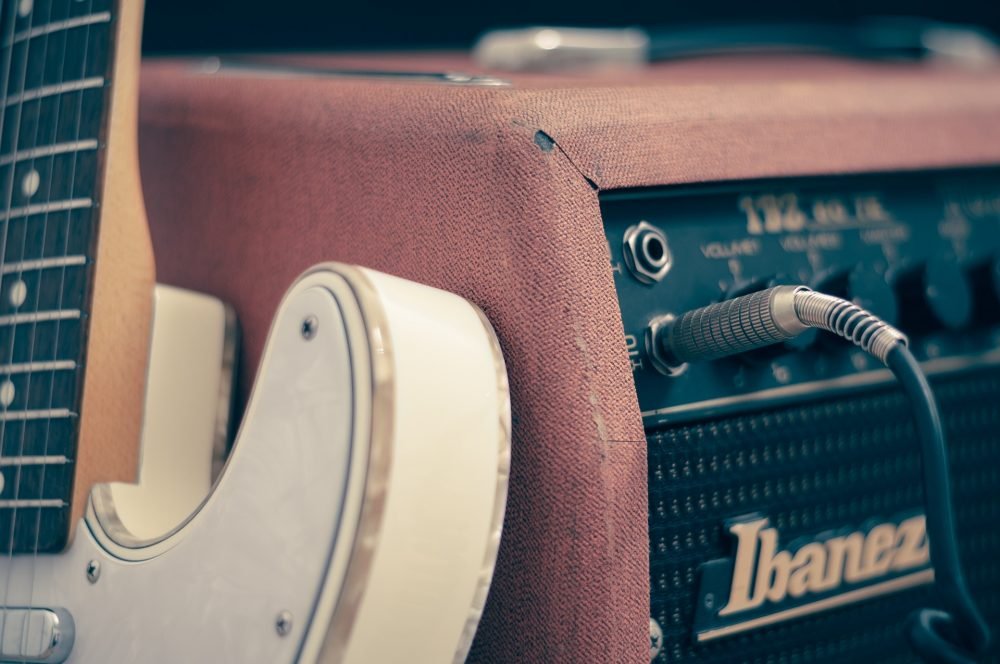
Apart from your guitar pedals, the distortion of an amplifier can dictate the sound and style of the music you play. It can also affect how you play because of partly because of its effect on the sound you produce. The most important thing for now is to choose an amp that can produce a sound that you like.
In general, you can choose between a pre-amp distortion or power-amp distortion. An amp with a power-amp distortion allows you to control grind on the front-end of your amplifier. Meanwhile, a pre-amp distortion allows you to push your sound to the limit, giving you a crisp electric sound.
Look At The Speaker Size
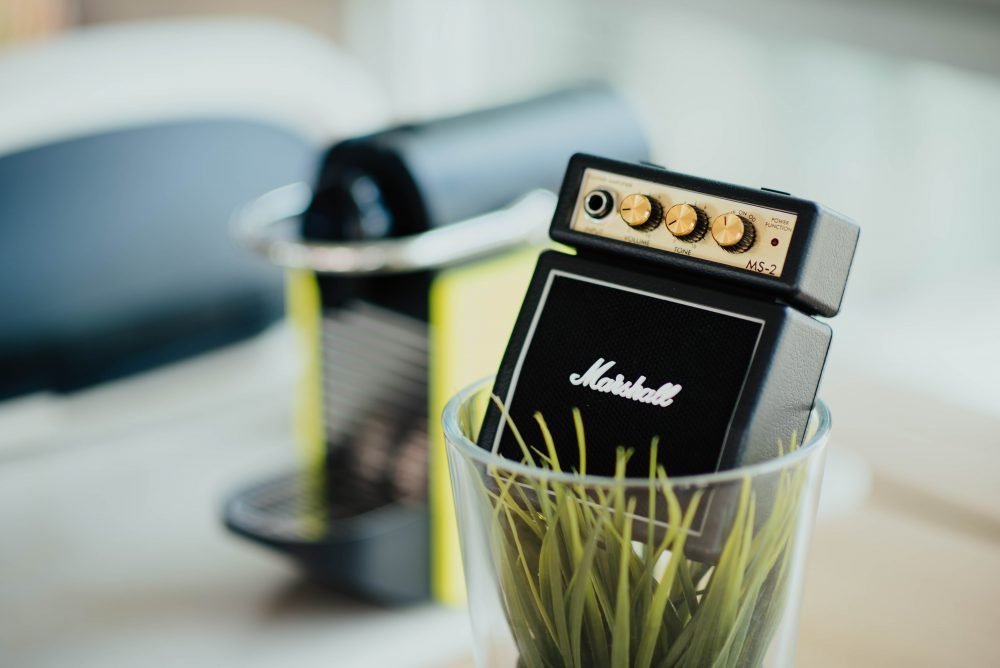
Amps have varying speaker sizes, but it is often the most overlooked parts when buying a guitar amp. Did you know that the size of your speakers can affect the way people hear your music? Each speaker size has a different tone.
That said, speaker sizes should also be one of the things you should pay attention to, as much as you would with your amp’s power and wattage.
Also Read:
Tube Amps vs Solid State: Differences, & Which is Better?
Surf The Channels And Twist Some Knobs
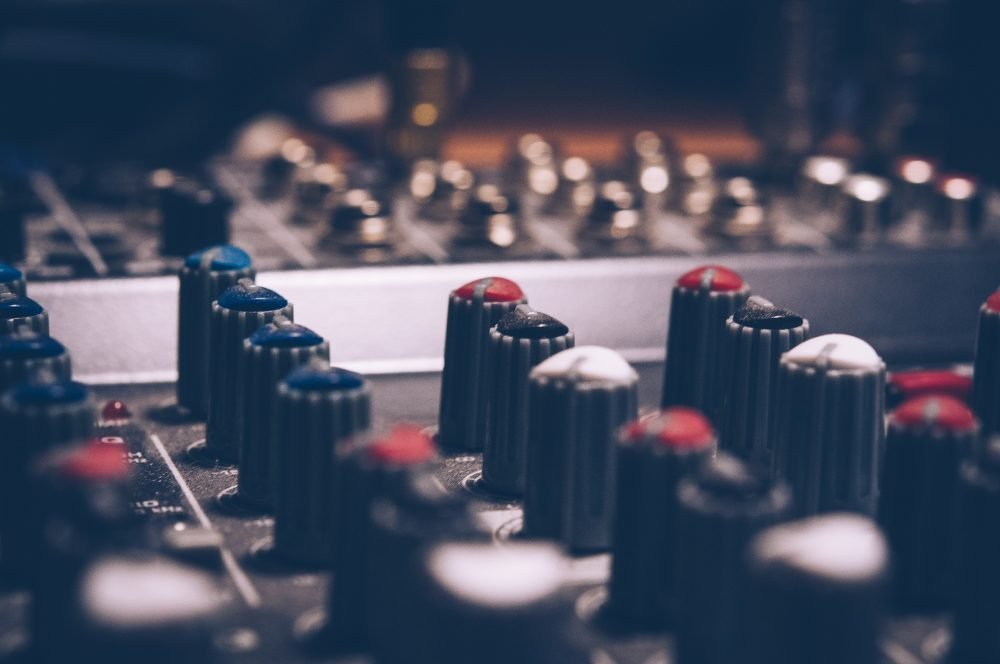
Last but not least, it is crucial that you familiarize yourself with the amplifier as a whole.
Most amps today have are multichannel, allowing guitarists like yourself to find the right mix of tone and distortion. Experiment and have fun with this step. Trying out different things might even inspire you to discover new things about your music preferences.
Also, you should also turn knobs and check out the amp’s features. Figure out if it has everything you need or more. Decide if you are willing to pay for all those extra gizmos. Test the channels and be the judge for the quality of its sound.
After all, only you can tell what sounds great for the music you want to create.
